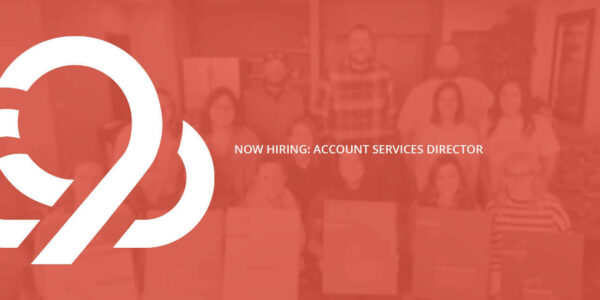
No One Cares About You: Why and How to Write about Benefits, Not Features
Your customers don’t care about your business.
I’m sorry, but it’s true. Even your biggest brand evangelists don’t really care about your brand. They care about how it benefits them. The second your business stops giving them value, they’re gone.
Ruthless, huh?
Don’t take it personally. This is just natural human behavior. We’re hardwired to look out for ourselves in all aspects of life — especially in our finances. We aren’t going to pay for something unless we really, really want it . . . which is why we frankly don’t give a damn about your product’s “features.”
When you’re pitching your product, it’s absolutely essential to focus on how it benefits your customer, not your company. This might sound obvious, but we’re all guilty of getting so excited about our own product that we go on and on about the thing itself, rather than applying it to our customer’s personal pain points.
The good news? It’s actually way more fun to talk to your customer than to talk about a product.
Here’s how to tell whether you’re writing about features or benefits — and three specific ways to improve your copywriting (and, ultimately, your sales!).
The Difference Between Benefits and Features
Features tell; benefits sell.
If you have any background in copywriting or sales, you’ve probably heard some iteration of this phrase. For good reason, though — there’s real power in writing about benefits, not features.
But what’s the difference between the two?
What Is a Feature?
Features focus on your product or service itself. Features are centered on functionality — how something works, what it does, why it’s better or unique.
Some examples of product features are:
- Storage up to 256 GB
- Chatbot integration
- Built-in pockets
What’s wrong with those? Nothing, inherently — except that they’re not exciting. (Well, except the built-in pockets one. Women want pockets, dammit.)
Does anyone really care about 256 GB — or do they care about what those 256 GB allow them to do?
What Is a Benefit?
Benefits, on the other hand, focus on the outcome of your product or service. Benefits are centered on self-interest — why someone would care to purchase your product, how it might improve their life.
Some examples of product benefits are:
- Holds up to 25,000 photos without slowing down
- Automatically responds to your customers’ questions (and actually sounds like a real human)
- Safely stores your phone, keys, and credit cards while you run
Don’t those just sound more enticing?
“Here’s what our product can do” and “Here’s what you can do with our product” sound similar, but they are completely different approaches.” — Jason Fried
3 Tricks for Writing about Benefits, Not Features
It’s easy to see, well, the benefit in crafting your marketing around your product’s benefits rather than its features.
But how do you actually put those benefits into words?
To effectively write about benefits, not features, you have to get inside your customer’s head. What are they fretting about when they’re trying to sleep? What do they want to feel when they look in the mirror? What would make their life easier, happier, more meaningful?
If you need some more concrete copywriting prompts, here are three easy ways to make your content marketing more benefit (AKA customer) focused.
1. Start with an Action Verb
Believe it or not, people actually do want to be told what to do — even (especially?) from your business. They want to be wowed by your marketing, not confused by your message.
So tell them, in no uncertain terms, exactly what they should do (and why!).
- Don’t say: “Women over 40 may want to try this program if they’ve had trouble losing weight after pregnancy.”
- Do say: “Wave goodbye to those stubborn pounds with our weight-loss program designed specifically for moms over 40.”
You might feel pushy or blunt, but as long as you keep your customer’s emotional response in mind, you won’t drive them away — you’ll drive them to purchase.
After all, people can’t take action if you don’t tell them what that action should be.
2. Say “You” as Often as Possible
They say everyone’s favorite word is their own name. When you’re speaking to the masses, the word “you” comes pretty close.
Throughout this article, I’ve been speaking directly to “you” rather than referring to copywriters in general. Why? Because writing in the second person works. It pulls the reader in to your content, making them — not your business — feel like the protagonist of the story.
Try applying the 80-20 rule to your writing: use “you” language 80% of the time, and use “we” language 20% of the time.
- Don’t say: “We have many affordable listings available on our website.”
- Do say: “Find your dream house in your dream neighborhood for a price you can (really!) afford.”
Because who wants to listen to someone — especially someone who’s trying to sell you something — talk only about themselves?
3. Try the “So What?” Test
When all else fails, use the “So what?” trick.
In all your content marketing, keep referring back to the problem at hand. Because there is a problem — otherwise, your product or service wouldn’t exist.
Take a product feature and turn it into a benefit by asking yourself why it even matters. Pretend you’ve explained the feature to a potential customer, and they’ve responded with, “So what?”
- Don’t say: “Our toothbrush delivery service delivers every six weeks.”
- Do say: “You’ll never forget to replace your toothbrush again.”
Remember, all purchasing decisions are emotional. Even the most logical people buy based on some level of desire or fear. Don’t exploit their emotion, but do use it to show them how your product can help.
And isn’t that what inbound marketing is all about?
Need More Help with Your Content Marketing?
You could be a fantastic writer but a terrible copywriter if you haven’t mastered the art of communicating with your buyer persona.
Sometimes, we’re just too close to our own product or service to market it effectively . . . or we’re just too busy.
In either case, if you find yourself foundering when it comes to content marketing, consider hiring a digital marketing agency like 9 Clouds to help you out. We’re masters of creative copy and search engine optimization (SEO), and we’d love to help you craft content that speaks directly to your customers.
Show Up With SEO »




![Human vs AI A/B Test [Spoiler Alert: Humans Win!]](https://9clouds.com/wp-content/uploads/2024/02/Volvo-dealership-1-600x388.png)


